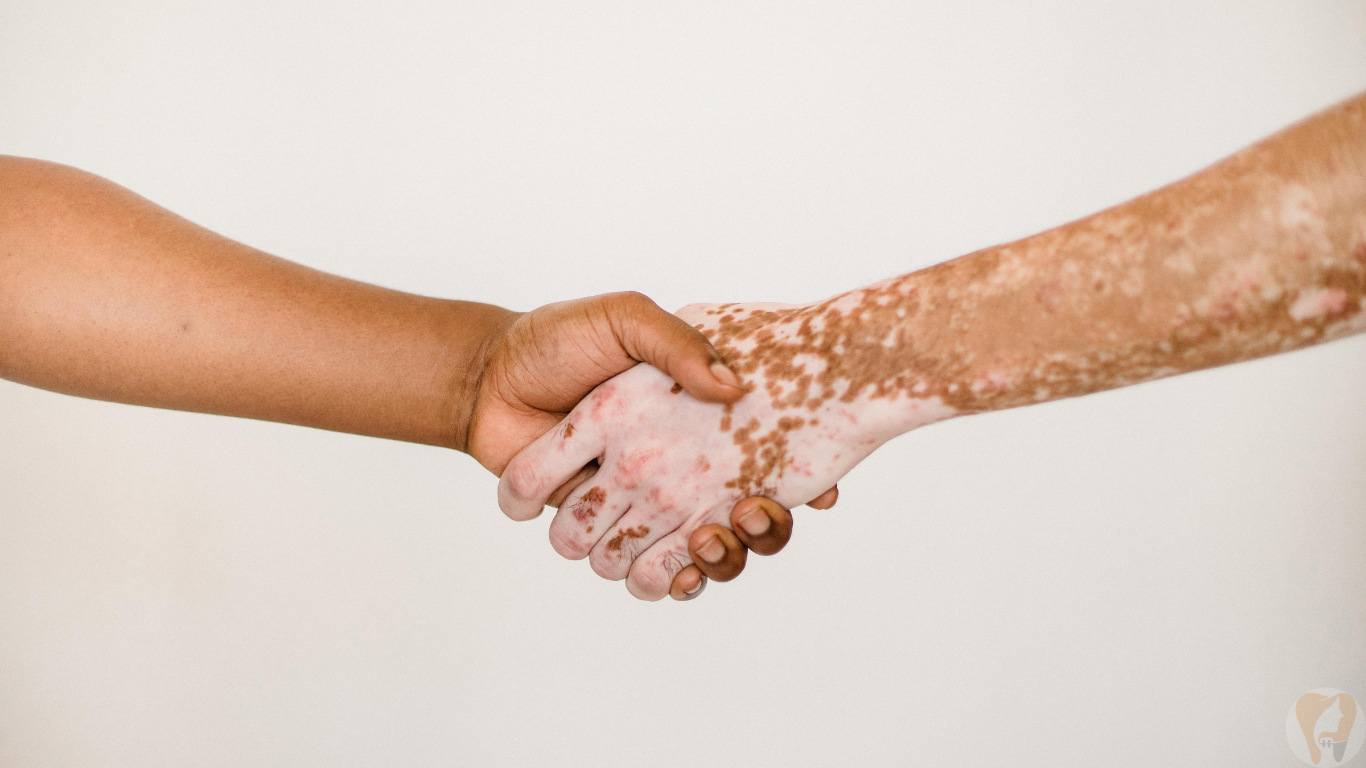

Vitiligo is a skin condition that causes white patches due to loss of skin pigment (melanin). While it is not contagious or harmful to overall health, it can impact self-confidence and emotional well-being. At Janagond Skin & Dental Clinic, Vijayapura, we provide specialized care for vitiligo with a focus on early diagnosis, personalized treatment, and long-term management.
Vitiligo occurs when pigment-producing cells (melanocytes) are destroyed or stop functioning. The exact cause is not fully known but may involve autoimmunity, genetics, stress, or environmental triggers. It can appear anywhere on the body—commonly on the face, hands, feet, or around body openings.
Because vitiligo presentation and response vary widely, a consultation with our dermatologist is essential for proper evaluation. We begin with a clinical examination, medical history, and sometimes specialized diagnostic tools like a Wood’s lamp test to assess extent and activity.
Based on the condition, treatment options may include:
Topical creams to stimulate pigmentation and reduce immune attack.
Phototherapy (narrowband UVB light) to encourage repigmentation in affected areas.
Oral medications or supplements when needed for active or spreading vitiligo.
Camouflage options with safe, dermatologist-recommended products to blend skin tone.
Lifestyle guidance (sun protection, stress management, and supportive care).
In stable cases, advanced dermatology procedures (like grafting or melanocyte transfer) may also be considered, but always after careful evaluation.
Our aim is to restore pigmentation where possible, slow or stop progression, and support emotional well-being with empathetic, professional care.
1) Is vitiligo curable?
There is no permanent “cure” yet, but modern treatments can restore pigment, control spread, and improve appearance significantly.
2) Can vitiligo spread to the whole body?
In some individuals, vitiligo may remain localized, while in others it may slowly spread. Early treatment and follow-up improve outcomes.
3) Is vitiligo hereditary?
Family history may increase risk, but not everyone with a genetic predisposition develops vitiligo.
4) Does diet affect vitiligo?
A healthy diet supports general skin health. While no food “cures” vitiligo, balanced nutrition with antioxidants may aid treatment.
5) How soon will I see results from treatment?
Response varies. Some notice repigmentation in weeks, while others may need months of consistent therapy for improvement.
©2025. Janagond Skin & Dental Clinic | Development & Support - Aviem Media